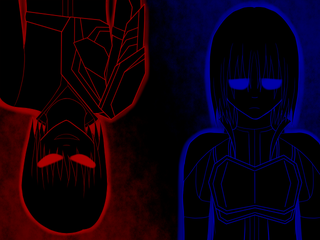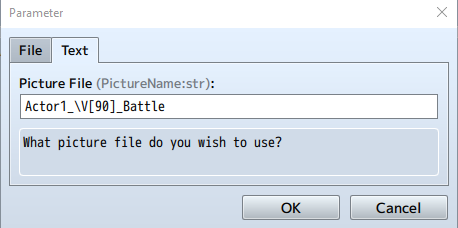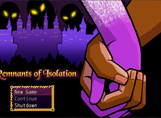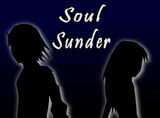RED_NOVA'S PROFILE
Red_Nova

Sir Redd of Novus: He who made Prayer of the Faithless that one time, and that was pretty dang rad! :D
9192
RMN's Most Humblest!



Prayer of the Faithless
On the brink of the apocalypse, two friends struggle to find what is worth saving

On the brink of the apocalypse, two friends struggle to find what is worth saving
Search
 Buildings!
Buildings!
Anyone know of any nice looking buildings made in RPG Maker? I'm trying to improve my building design to break away from my usual square block of tile process, but all the architecture I've looked up for reference/inspiration doesn't translate well into RPG Maker's perspective.
They can be homes, cathedrals, shacks, whatever. As long as they are buildings, I'd like to see them.
They can be homes, cathedrals, shacks, whatever. As long as they are buildings, I'd like to see them.
 J*PG
J*PG
https://www.inverse.com/gaming/jrpg-meaning-offensive-naoki-yoshida
A bit late to the party, but for those that aren't aware: Naoki Yoshida (producer of Final Fantasy XVI), made a statement that the term "JRPG" was used as a derogatory word:
I'm conflicted on what to do about this. On one hand, the wishes of the group originally targeted by the term should be heard and respected. Categorizing an entire genre of games based on the country it came from does have a slight segregationist smell to it.
On the other hand, language changes with time, and the term simply doesn't have the negative connotation that it used to (quite the opposite, actually!) in the wider world. I know of similar situations where terms that were once used as derogatory are now used normally or even as a sign of respect. Also, I wouldn't know what we would replace it with if we were to retire the term.
So what do you think? Should the term JRPG be phased out? If so, what should it be replaced with?
A bit late to the party, but for those that aren't aware: Naoki Yoshida (producer of Final Fantasy XVI), made a statement that the term "JRPG" was used as a derogatory word:
“For us as developers , the first time we heard it, it was like a discriminatory term,” explained Yoshida. “It’s as though we were being made fun of for creating these games. So for some developers, the term JRPG can be something that will maybe trigger bad feelings because of what it was in the past.”
I'm conflicted on what to do about this. On one hand, the wishes of the group originally targeted by the term should be heard and respected. Categorizing an entire genre of games based on the country it came from does have a slight segregationist smell to it.
On the other hand, language changes with time, and the term simply doesn't have the negative connotation that it used to (quite the opposite, actually!) in the wider world. I know of similar situations where terms that were once used as derogatory are now used normally or even as a sign of respect. Also, I wouldn't know what we would replace it with if we were to retire the term.
So what do you think? Should the term JRPG be phased out? If so, what should it be replaced with?
 Lying to Players
Lying to Players
In summary, Fire Emblem games tend to fudge the displayed hit percentage so that higher numbers are more likely to hit and low numbers are more likely to miss.
On one hand, I understand the sentiment: In a game with permadeath, seeing one of your units die from an attack that only had a 30% chance of hitting feels unfair, despite the obvious fact that a 30% chance of hitting means being hit is possible. On the other hand, I'm not a fan of displaying incorrect information to a player. I feel like you should either display the fudged number, display the hit rate as a range instead of a single number, or rework the hit calculation so that fudging the numbers isn't necessary.
What do you think? Is there merit to altering values under the hood? Or are you a fan of 100% transparency all the time?
 [RMMZ] Referencing Variables in Plugin Command
[RMMZ] Referencing Variables in Plugin Command
So I'm learning RMMZ and am trying out VisuStella's Visual Novel Busts plugin. When trying to reference a specific bust, I want to be able to append a variable value at the end of a file name. Something like this:

\V{90} isn't being evaluated into a variable value like I want, and I can't change the code itself since the plugin is obfuscated. Am I missing the correct syntax for this? Or is there really no way to reference a variable when calling a bust?
I'm not even sure if this is a VisuStella issue, a RMMZ one, or just operator error. Any assistance on this would be appreciated.

\V{90} isn't being evaluated into a variable value like I want, and I can't change the code itself since the plugin is obfuscated. Am I missing the correct syntax for this? Or is there really no way to reference a variable when calling a bust?
I'm not even sure if this is a VisuStella issue, a RMMZ one, or just operator error. Any assistance on this would be appreciated.
 [RMMZ] Referencing Variables in Plugin Command
[RMMZ] Referencing Variables in Plugin Command
So I'm learning RMMZ and am trying out VisuStella's Visual Novel Busts plugin. When trying to reference a specific bust, I want to be able to append a variable value at the end of a file name. Something like this:

\V[90] isn't being evaluated into a variable value like I want, and I can't change the code itself since the plugin is obfuscated. Am I missing the correct syntax for this? Or is there really no way to reference a variable when calling a bust?
I'm not even sure if this is a VisuStella issue, a RMMZ one, or just operator error. Any assistance on this would be appreciated.

\V[90] isn't being evaluated into a variable value like I want, and I can't change the code itself since the plugin is obfuscated. Am I missing the correct syntax for this? Or is there really no way to reference a variable when calling a bust?
I'm not even sure if this is a VisuStella issue, a RMMZ one, or just operator error. Any assistance on this would be appreciated.
 I hate white mages
I hate white mages
I can't think of a more boring job in a classic Final Fantasy-esque RPG than a white mage. At least warriors, for a simple as their game plan is, give you the satisfaction of killing an enemy to progress. What does a white mage add to the party dynamic? Healing and buffing.
I was reading through Darken's topic about fixing thieves, and I caught myself having similar thoughts about white mages. Problem is, I'm not sure white mages can be "fixed" because they fulfill their fundamental role so perfectly that adding more diverse abilities essentially graduates them from the white mage class. Therefore, I'm using this topic to call the fundamental role itself into question instead. Much like Darken's topic, I am assuming the game in question features a mostly standard turn-based battles like what you see in default RPG Maker projects or classic Final Fantasy-esque games.
Healing skills
For one thing, the idea that you need a dedicated party member just to heal feels like a waste of a member slot to me. Most RPGs already have items that can fulfil that purpose, and they can be used by anyone, not just white mages. Taking dedicated healers out of the party forces the player to think about which offensive unit should give up their action to use the item to heal themselves or the party, creating interesting micro choices throughout an entire dungeon crawl. If you're just hoarding your recovery items and instead using your white mage to heal, that costs MP that can only be restored via ether or other mp-restoring items. Either way, you're using items, so why not just skip the middleman and use the healing items instead? Ethers, from my experience, are generally rarer and more expensive than potions, so it's wild to me that white mages have somehow tricked players into consuming more ethers to restore a white mage's MP than using the healing items to restore HP.
I'll back up that last claim with an example from Prayer of the Faithless, my latest game. PotF heavily encouraged healing items over skills by 1) only having 2 healing skills in the entire game, 2) having those skills only be cast by the primary damage dealer, and even then cost a lot of MP and extra actions to be able to use, and 3) limiting the stack of healing items that can be carried so players are more likely use them to make room pick up more out in the field. However, when watching playthroughs, I noticed that people still kept using the skills anyway to heal, costing them more health and resources overall in battle since extra turns are used to set up and cast the healing skill. What this tells me is that players feel like MP is a more disposable resource than items, and will resort to using items if there is absolutely no other option.
Also, in general, I find skills that fully heal the entire party to be a bit of a cop-out. It feels like a "get out of jail free" card that you can play at any time to negate any tension or strategy to get your party out of a dangerous situation. It's not that I'm against "get out of jail free" cards, but having them be spells that you can replenish with a quick gulp of ether or a visit to an inn means that you will likely always have a comfortable stack of these cards to negate any tension that could have been found in a dungeon crawling session.
Buffs
Regarding buffs, I want to propose the idea that maybe they aren't needed as much as you think. Think of each stat in an RPGMaker database and ask yourself this "why can't I just raise this stat's base value permanently instead of relying on skills to buff it temporarily?" Buff attack to see big numbers and end the battle quicker? Why not just have the attack stat of warrior classes higher so you can ALWAYS see big numbers? Buff defense to take more damage? Why not have higher variance in equippable armor to encourage mixing and matching to a player's preference?
If you absolutely have to have buffs in your game, fine. However, do you really need a dedicated white mage just to apply them? How about attack skills that also buff the user? Or giving buff skills to other party members instead? A warrior/paladin would get a lot of mileage out of any skill that buffs their defense, especially if they have a cover skill to guard against weaker party members who wouldn't benefit much from a defense buff anyway.
Inflexibility
Finally, (and this is the biggest issue I have with them) white mages are so inflexible in their role that they are completely useless in any other situation. Trash mobs? Warriors can dispatch them quickly, thieves can steal from them to get items, black mages can cast spells to hit their weakness. What's a white mage going to do? Heal the party? Buff allies? Neither of those things are needed. All that white mages can do is bonk an enemy with their staff to maybe deplete some health that a warrior can inflict tenfold. Giving them a Holy-esque skill might solve the problem, but those are usually mid-late game skills that cost a lot of MP.
----------------------------------------
All in all, I fail to see any component of a white mage that wouldn't be better off taken away and added to a different job class. What are some solutions that you have done/would like to do to address these issues? If you disagree that what I laid out are even issues in the first place, please explain why. Thanks for reading.
I was reading through Darken's topic about fixing thieves, and I caught myself having similar thoughts about white mages. Problem is, I'm not sure white mages can be "fixed" because they fulfill their fundamental role so perfectly that adding more diverse abilities essentially graduates them from the white mage class. Therefore, I'm using this topic to call the fundamental role itself into question instead. Much like Darken's topic, I am assuming the game in question features a mostly standard turn-based battles like what you see in default RPG Maker projects or classic Final Fantasy-esque games.
Healing skills
For one thing, the idea that you need a dedicated party member just to heal feels like a waste of a member slot to me. Most RPGs already have items that can fulfil that purpose, and they can be used by anyone, not just white mages. Taking dedicated healers out of the party forces the player to think about which offensive unit should give up their action to use the item to heal themselves or the party, creating interesting micro choices throughout an entire dungeon crawl. If you're just hoarding your recovery items and instead using your white mage to heal, that costs MP that can only be restored via ether or other mp-restoring items. Either way, you're using items, so why not just skip the middleman and use the healing items instead? Ethers, from my experience, are generally rarer and more expensive than potions, so it's wild to me that white mages have somehow tricked players into consuming more ethers to restore a white mage's MP than using the healing items to restore HP.
I'll back up that last claim with an example from Prayer of the Faithless, my latest game. PotF heavily encouraged healing items over skills by 1) only having 2 healing skills in the entire game, 2) having those skills only be cast by the primary damage dealer, and even then cost a lot of MP and extra actions to be able to use, and 3) limiting the stack of healing items that can be carried so players are more likely use them to make room pick up more out in the field. However, when watching playthroughs, I noticed that people still kept using the skills anyway to heal, costing them more health and resources overall in battle since extra turns are used to set up and cast the healing skill. What this tells me is that players feel like MP is a more disposable resource than items, and will resort to using items if there is absolutely no other option.
Also, in general, I find skills that fully heal the entire party to be a bit of a cop-out. It feels like a "get out of jail free" card that you can play at any time to negate any tension or strategy to get your party out of a dangerous situation. It's not that I'm against "get out of jail free" cards, but having them be spells that you can replenish with a quick gulp of ether or a visit to an inn means that you will likely always have a comfortable stack of these cards to negate any tension that could have been found in a dungeon crawling session.
Buffs
Regarding buffs, I want to propose the idea that maybe they aren't needed as much as you think. Think of each stat in an RPGMaker database and ask yourself this "why can't I just raise this stat's base value permanently instead of relying on skills to buff it temporarily?" Buff attack to see big numbers and end the battle quicker? Why not just have the attack stat of warrior classes higher so you can ALWAYS see big numbers? Buff defense to take more damage? Why not have higher variance in equippable armor to encourage mixing and matching to a player's preference?
If you absolutely have to have buffs in your game, fine. However, do you really need a dedicated white mage just to apply them? How about attack skills that also buff the user? Or giving buff skills to other party members instead? A warrior/paladin would get a lot of mileage out of any skill that buffs their defense, especially if they have a cover skill to guard against weaker party members who wouldn't benefit much from a defense buff anyway.
Inflexibility
Finally, (and this is the biggest issue I have with them) white mages are so inflexible in their role that they are completely useless in any other situation. Trash mobs? Warriors can dispatch them quickly, thieves can steal from them to get items, black mages can cast spells to hit their weakness. What's a white mage going to do? Heal the party? Buff allies? Neither of those things are needed. All that white mages can do is bonk an enemy with their staff to maybe deplete some health that a warrior can inflict tenfold. Giving them a Holy-esque skill might solve the problem, but those are usually mid-late game skills that cost a lot of MP.
----------------------------------------
All in all, I fail to see any component of a white mage that wouldn't be better off taken away and added to a different job class. What are some solutions that you have done/would like to do to address these issues? If you disagree that what I laid out are even issues in the first place, please explain why. Thanks for reading.
 Improving Basic Attack and Guard Functionality
Improving Basic Attack and Guard Functionality
Why do your basic attack when you have a plethora of skills available to use instead? What's the point of hitting the guard option when you can just attack enemies instead? No need to guard when they're dead, after all. What rewards beyond reducing damage do you like to see in a guard command? What else do you want to see in a basic attack beyond just inflicting basic damage?
I try to tweak battle mechanics to give these two commands more viability in my games, but I want to talk about how you all handle it or if you know of games that handle these two commands well.
Just so it's clear, I'm talking about system-level mechanics and tweaks. External factors like enemy behavior encouraging more guarding or party members using more basic attacks due to the lack of other offensive options isn't what we're looking for here. Also, removing these options isn't helpful, either. Let's talk about mechanics that make basic attacks just as useful as, say, an AOE slash skill.
In my first game, Soul Sunder, the guard and attack commands restored and depleted a character's stamina pool, respectively. Once a character's SP was reduced, they had no choice but to guard to restore stamina, reducing damage at the same time. It's a small addition, but it's enough to change the ebb and flow to combat, as now players are required to understand the limits of their characters and read the enemy attack patterns to maximize damage and minimize resource spent.
In my current game, Prayer of the Faithless, defensive mechanics in general received a major overhaul: guarding no longer reduces incoming damage, and instead restores a % of a character's maximum SP. Since SP now represents a character's defense, reducing a % of all incoming physical damage, this means that players are encouraged to take a more aggressive role in combat.
As for basic attacks, I typically give them the exact same damage formula as skills. The only functional difference between basic attacks and skills is that skills have an added effect, such as inflicting a state or a critical hit under specific conditions. Because of this, skills are not replacements for basic attacks, and players are encouraged to use them just as often as skills when they just want to inflict damage.
There is certainly a lot of potential to alter basic attacks quite a bit with weapons, too. The Golden Sun games had a good idea where equipping different weapons gave you different "Howl" skills that randomly activated upon using the basic attack, though I wish there was less RNG in that implementation.
Bloodborne, while not a turn-based game, let you restore health lost from a recent attack by fighting back.
Healers and other non-offensive party members would need specific tweaks to make their attack and guard options useful, but I'm struggling to think of useful system-level mechanics for them. Perhaps guarding can increase the effectiveness of their next healing spell? Maybe their attacks don't do direct HP damage, but instead inflict an ailment that increases damage from the next attack, allowing for a team combo of sorts?
Those are just my implementations and ideas. I'm sure you all have your own. Share some here! And be sure to let me know if any of my ideas are stupid and that you know of a better solution!
I try to tweak battle mechanics to give these two commands more viability in my games, but I want to talk about how you all handle it or if you know of games that handle these two commands well.
Just so it's clear, I'm talking about system-level mechanics and tweaks. External factors like enemy behavior encouraging more guarding or party members using more basic attacks due to the lack of other offensive options isn't what we're looking for here. Also, removing these options isn't helpful, either. Let's talk about mechanics that make basic attacks just as useful as, say, an AOE slash skill.
In my first game, Soul Sunder, the guard and attack commands restored and depleted a character's stamina pool, respectively. Once a character's SP was reduced, they had no choice but to guard to restore stamina, reducing damage at the same time. It's a small addition, but it's enough to change the ebb and flow to combat, as now players are required to understand the limits of their characters and read the enemy attack patterns to maximize damage and minimize resource spent.
In my current game, Prayer of the Faithless, defensive mechanics in general received a major overhaul: guarding no longer reduces incoming damage, and instead restores a % of a character's maximum SP. Since SP now represents a character's defense, reducing a % of all incoming physical damage, this means that players are encouraged to take a more aggressive role in combat.
As for basic attacks, I typically give them the exact same damage formula as skills. The only functional difference between basic attacks and skills is that skills have an added effect, such as inflicting a state or a critical hit under specific conditions. Because of this, skills are not replacements for basic attacks, and players are encouraged to use them just as often as skills when they just want to inflict damage.
There is certainly a lot of potential to alter basic attacks quite a bit with weapons, too. The Golden Sun games had a good idea where equipping different weapons gave you different "Howl" skills that randomly activated upon using the basic attack, though I wish there was less RNG in that implementation.
Bloodborne, while not a turn-based game, let you restore health lost from a recent attack by fighting back.
Healers and other non-offensive party members would need specific tweaks to make their attack and guard options useful, but I'm struggling to think of useful system-level mechanics for them. Perhaps guarding can increase the effectiveness of their next healing spell? Maybe their attacks don't do direct HP damage, but instead inflict an ailment that increases damage from the next attack, allowing for a team combo of sorts?
Those are just my implementations and ideas. I'm sure you all have your own. Share some here! And be sure to let me know if any of my ideas are stupid and that you know of a better solution!
 What are YOU even good for?
What are YOU even good for?

Hello. I'm Nova Novingsworth, President and CEO of Novinga game development studio. Convince me that you would be a valuable asset to our company.
Please use words I can understand.
 [RGSS3] Debugging Help
[RGSS3] Debugging Help
So I found a nifty little Ruby method to print a trace from the code's current location:
I'm using this to debug my code, but I need a little help converting one piece of information to something readable. I put the caller method in my code and get this:
From the first line of the above block: "{0166}" is the name of the script containing the trace call (in this case, Yanfly's Equip Engine), and 6390 I believe refers to a line number, but I'm not sure exactly, as Yanfly's Equip Engine is certainly not even close to 6000+ lines. I need to somehow convert these lines to something readable, but I don't know what method to use.
I need to figure out how to translate {0166}:6330 into the exact script name and line number during output. Doing this will help me read which methods from which scripts are being called. Any help on this would be greatly appreciated!
puts caller.join("\n")
I'm using this to debug my code, but I need a little help converting one piece of information to something readable. I put the caller method in my code and get this:
{0166}:6390:in `refresh'
{0067}:57:in `set_temp_actor'
{0069}:112:in `update_help'
{0054}:391:in `call_update_help'
{0054}:96:in `active='
{0053}:137:in `activate'
{0166}:6582:in `init_commands'
{0166}:6558:in `start'
{0100}:12:in `main'
{0006}:23:in `run'
{0275}:10:in `block in <main>'
:1:in `block in rgss_main'
:1:in `loop'
:1:in `rgss_main'
{0275}:8:in `<main>'
ruby:in `eval'From the first line of the above block: "{0166}" is the name of the script containing the trace call (in this case, Yanfly's Equip Engine), and 6390 I believe refers to a line number, but I'm not sure exactly, as Yanfly's Equip Engine is certainly not even close to 6000+ lines. I need to somehow convert these lines to something readable, but I don't know what method to use.
I need to figure out how to translate {0166}:6330 into the exact script name and line number during output. Doing this will help me read which methods from which scripts are being called. Any help on this would be greatly appreciated!
 Persona 5, Streaming, and the Impact of Spoilers in Story-Driven Games
Persona 5, Streaming, and the Impact of Spoilers in Story-Driven Games
In case you aren't aware yet, Atlus has threatened copyright claims on any streams or LPs that, among other restrictions, show content of Persona 5 after a certain in-game date:
As you can imagine, this did not go over well with the community.
What makes this case especially interesting to me is the fact that P5 is a highly linear, story-driven game. There was a similar controversy with the release of That Dragon, Cancer a while ago, and I wonder how many arguments applied to that game apply here as well?
I'm also curious about your opinions on player's reactions to this decision. Simply put, Atlus caused the Streisand effect to go in full swing: Comments on vids of certain Youtubers I follow complain that spoilers for P5 run rife, content creators are openly giving the middle finger to Atlus by posting endgame content and cutscenes, among other responses. Has anyone seen similar problems?
For the record, requesting that players refrain from spoiling Persona's story is not new behavior for Atlus. This has occurred with previous games in the series, including Persona 5's release in Japan. So why, then, is THIS instance causing an uproar? Well, I imagine it's because Atlus has outright THREATENED players with taking down their channels this time. In the past (from what I've seen), it was just kept as a kind request that players do not spoil the game. No one, especially those making their living on Youtube, likes having their channels threatened.
What are your thoughts on this whole debacle? If you were in Atlus' position, how would you have handled this situation? Would you give free reign to Youtubers and streamers to post whatever they want? Would you make a different request? Talk about it here.
from linked article
If you decide to stream past 7/7 (I HIGHLY RECOMMEND NOT DOING THIS, YOU HAVE BEEN WARNED), you do so at the risk of being issued a content ID claim or worse, a channel strike/account suspension.
As you can imagine, this did not go over well with the community.
What makes this case especially interesting to me is the fact that P5 is a highly linear, story-driven game. There was a similar controversy with the release of That Dragon, Cancer a while ago, and I wonder how many arguments applied to that game apply here as well?
I'm also curious about your opinions on player's reactions to this decision. Simply put, Atlus caused the Streisand effect to go in full swing: Comments on vids of certain Youtubers I follow complain that spoilers for P5 run rife, content creators are openly giving the middle finger to Atlus by posting endgame content and cutscenes, among other responses. Has anyone seen similar problems?
For the record, requesting that players refrain from spoiling Persona's story is not new behavior for Atlus. This has occurred with previous games in the series, including Persona 5's release in Japan. So why, then, is THIS instance causing an uproar? Well, I imagine it's because Atlus has outright THREATENED players with taking down their channels this time. In the past (from what I've seen), it was just kept as a kind request that players do not spoil the game. No one, especially those making their living on Youtube, likes having their channels threatened.
What are your thoughts on this whole debacle? If you were in Atlus' position, how would you have handled this situation? Would you give free reign to Youtubers and streamers to post whatever they want? Would you make a different request? Talk about it here.
















